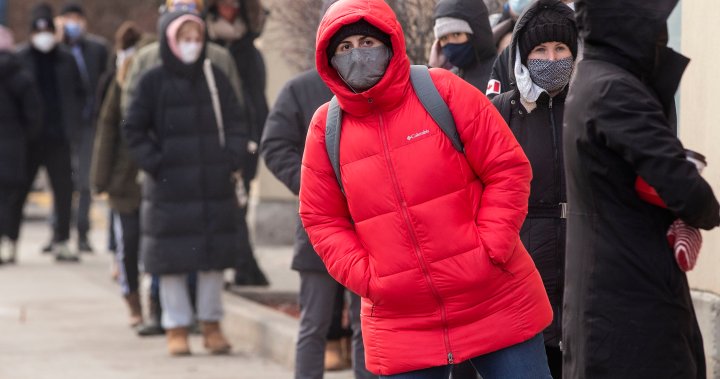
COVID-19 testing can be hard to find. So what should you do if you have symptoms?
Global News
PCR tests for COVID-19 can be hard to book, especially with an Omicron-driven surge in COVID-19 cases. Here's what you should do if you have symptoms, but can't get a test.
Ottawa’s COVID-19 testing taskforce announced Tuesday that they’ve paused walk-in COVID-19 tests, keeping PCR tests available for “essential workers who require an urgent COVID-19 test.”
It’s not just the nation’s capital either. In Montreal, the wait time for a PCR test appointment can reportedly be up to 10 days, depending on where you live.
London, Ont. residents are struggling to get themselves COVID-19 tested too, and a number of COVID-19 testing sites in the Vancouver Coastal Health Region aren’t able to provide an estimated wait time for walk-ins.
On top of all that, rapid tests have become one of the country’s hottest commodities — with Canadians in some regions waiting hours in the bitter cold only to be turned away without a rapid antigen test in hand.
“People cannot get PCR tests. The rapid tests are hard to find as well,” said Raywat Deonandan, an epidemiologist and associate professor at the University of Ottawa.
“We’re probably rationing PCR tests to a large extent, by which I mean reserving them for healthcare workers or people who need them for clinical diagnostic purposes.”
So if you can’t get your hand on a test, what should you do? Here’s what we know.
The first thing you should consider is whether you actually have symptoms of the Omicron variant of COVID-19, or any other strain of COVID-19, according to infectious disease specialists.











